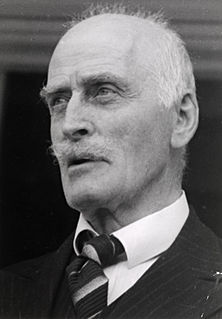A Quote by Samuel Johnson
The superiority of some men is merely local. They are great because their associates are little.
Quote Topics
Related Quotes
Someone asked me about what's it like managing 2.2 million associates, and I said, 'When they're Wal-Mart associates, it's not all that hard because of the quality and the depth of our talent.' I'm really proud of the fact that 70% of the managers in the U.S. started as hourly associates with our company.
Society is a more level surface than we imagine. Wise men or absolute fools are hard to be met with, as there are few giants or dwarfs. The heaviest charge we can bring against the general texture of society is that it is commonplace. Our fancied superiority to others is in some one thing which we think most of because we excel in it, or have paid most attention to it; whilst we overlook their superiority to us in something else which they set equal and exclusive store by.
Great men are excellent topics of conversation, but the superior man, the superior men, the masters, the universal spirits on horseback, have to stop and search their memories merely to know who these so-called great men might be. And so the great man is left with the crowd, the worthless majority...for his admirers.
Surely there must be some way to find a husband or, for that matter, merely an escort, without sacrificing one's privacy, self-respect, and interior decorating scheme. For example, men could be imported from the developing countries, many parts of which are suffering from a man excess, at least in relation to local food supply.
It is important to note that research has shown that men who have abusive mothers do not tend to develop especially negative attitudes toward females, but men who have abusive fathers do; the disrespect that abusive men show their female partners and their daughters is often absorbed by their sons.
So while a small number of abusive men do hate women, the great majority exhibit a more subtle-though often quite pervasive-sense of superiority or contempt toward females, and some don't show any obvious signs of problems with women at all until they are in a serious relationship.
Open your eyes and look for some man, or some work for the sake of men, which needs a little time, a little friendship, a little sympathy, a little sociability, a little human toil....It is needed in every nook and corner. Therefore search and see if there is not some place where you may invest your humanity.
Some of Mr. Gregory's poems have merely appeared in The New Yorker ; others are New Yorker poems: the inclusive topicality, the informed and casual smartness, the flat fashionable irony, meaningless because it proceeds from a frame of reference whose amorphous superiority is the most definite thing about it they are the trademark not simply of a magazine but of a class.
Orthodox Christians have the habit of claiming all great men, all men who have held important positions, men of reputation, men of wealth. As soon as the funeral is over clergymen begin to relate imaginary conversations with the deceased, and in a very little while the great man is changed to a Christian - possibly to a saint.





































